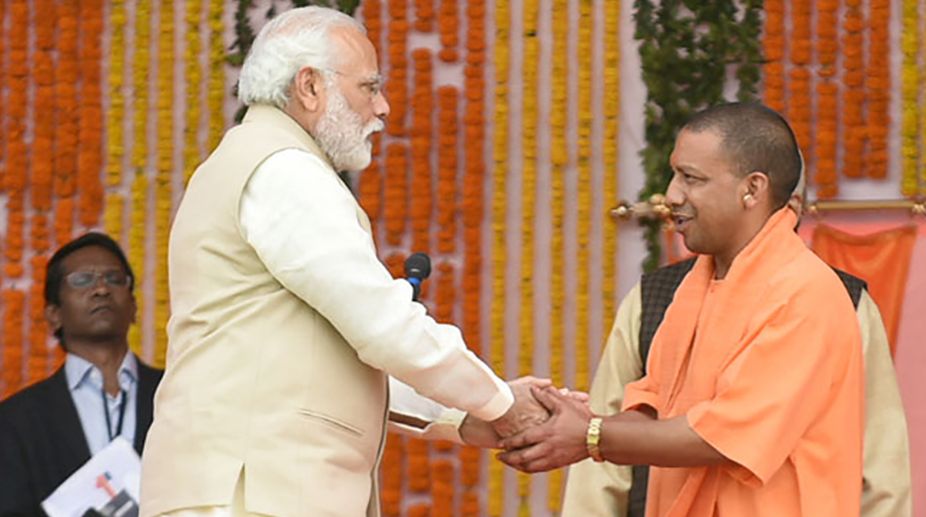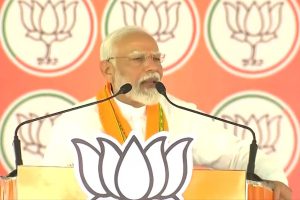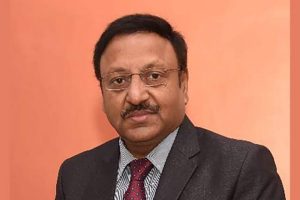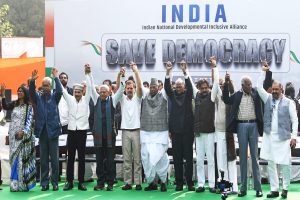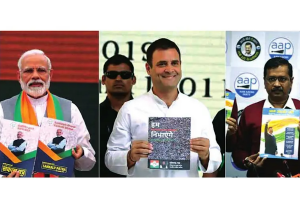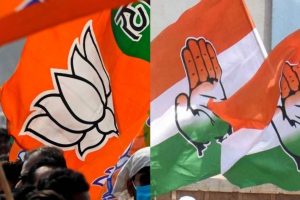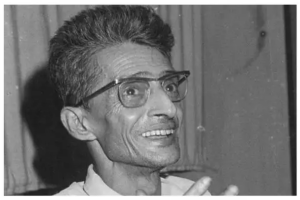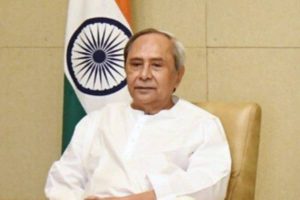With the tediously long-drawn-out carnival of the State elections over and the results ~ stunning in the extreme to some of a particular ideological persuasion ~ sealed and signed, the old familiar challenge of coming good on promises and delivering on them has made its inevitably quiet entrance on stage. In the initial rush of things, it remains artfully draped in strong political resolve and magnetically draws soaring expectations. Niggling and lumpy anxieties, apprehensions and fears stand effectively sidelined for the moment. Also forgotten are those hand-wringing gripes of the ECI (Election Commission of India) on inflammatory statements, mixing religion with election campaigns as well as the unchanged, all-conquering vice-like grip of money and muscle power. And it is left to the Supreme Court to adjudicate in its wisdom, sometime in the near, or distant future, on the purportedly dark and sinister role of the universally acclaimed EVMs (Electronic Voting Machines).
Captain Amarinder Singh, Chief Minister of Punjab, helming the lone Congress victory, after the predictable large-scale shuffling of the bureaucratic pack, got down to business immediately, ordering a crackdown on corruption, setting an amazing three-day deadline of filing of chargesheets and reiterating his determination to end the debilitating drug menace that had hollowed out the State. Going digital was to be the guiding mantra to provide the much yearned-for push to transparency, efficiency and accountability. Sound stuff, but nothing very dramatic. Similar announcements came from Trivendra Rawat, first-time Chief Minister of Uttarakhand. However, whetting the concern-quotient, without obviously intending to, he went public on his Government’s commitment to cow protection in the State. “Our Government will ensure the implementation of the Cow Protection Act that was formulated during the BJP’s previous term in 2007,” he stated in his first formal media address. On the other hand, perhaps caught up in the complexities of managing delicately balanced coalitions, crafted with enviable skill and speed, Manipur and Goa Governments did not seek to make a splash on this score. As it turned out, they received adverse publicity and severe lambasting in Parliament, in a measure ~ and for reasons ~ they may not have either anticipated or welcomed.
Beating the other States hollow, hands down, not surprisingly though, there has been more than a mega-splash in Uttar Pradesh, the most populous State in the country, where the seven-phase election and its outcome elicited unprecedented and avid interest , going far beyond the mere “political”. It is slated not only to redefine itself, on the strength of the thumping mandate, described more convincingly as prachand in the local language, in many a fundamental sense but also, boldly enough, to attempt to colour the national trajectory towards 2019 and beyond, to 2024. Uttam Pradesh is what is glowingly envisioned. Going by available reports, the political will for realising it could not be more unequivocal. The Chief Minister, Adityanath Yogi, the five-term MP from Gorakhpur, held a meeting with senior officials a day after he took the oath of office and made it clear that the Lok Kalyan Sankalp Patra, 2017, the BJP’s election manifesto, would have to be implemented in letter and spirit. He directed that all the points in the manifesto would have to be taken up with utmost seriousness and stressed that as the majority of the population was dependent on administrative units like thanas and tehsils for the fulfilment of their basic needs, they had to be kept free of all political pressure. There was an equally firm emphasis on putting an immediate end to corruption. Zero tolerance of it was to be the undisputed leitmotif. Officials have been ordered, in a logical follow-up, to disclose details of their assets in a fortnight, with a view to infusing a new work culture and augmented transparency in the State. A promise has been held out that only honest officials would be hand-picked for assignments crucial to the realisation of the people’s verdict.
Citizens’ Charters are to be drawn up for each Department so that the common man gets the benefit of Government services without any discrimination. Sabka saath, sabka vikaas. Only development, no appeasement. It could not get more categorical than that. The key aspects of the Lok Kalyan Sankalp Patra are to be incorporated accordingly in the Budget to be presented shortly. To leave absolutely no room for doubt about the grave consequences of slipping up or faltering, officials have been warned upfront that penal action would be initiated if they failed to enforce law and order, check cow slaughter, crimes against women and communal flare-ups. In a nutshell, State officials have been put on the highest alert to perform or be pulverised professionally.
In UP it is no longer a wishy-washy whine about a wee better implementation of the tangled concertinas of myriad sarkari schemes and programmes or the hypocritical chant of finally wiping the proverbial tear from the eyes of the utterly deprived, marginalised and eternally victimised. There is a distinctive clarity and sharpness to the stated resolve. That it has made an impressive mark is as plain as plain can be. Images carried by media of the harried, hassled administrative machinery tying itself in the strangest of knots to report compliance in double quick time to a demanding CM, may evoke derision and scorn and even some faint amusement. That apart, they tell an important story very eloquently indeed. It is quite simply about the dynamic potential and prospects of realising the people’s verdict, given the appropriate synchronisation of political and bureaucratic commitment.
Though we never stop crooning about being the world’s largest, most vibrant, functioning democracy, coming good on electoral promises, has not been rated top priority. It is a disquieting commentary on our recent history that so many netas have got away with such brazen chicanery for as long as seven decades. The electorate has suffered in numbed, damaged silence . The only sweet revenge has been in unceremoniously unseating them but ~ and here’s the most hurtful catch ~ not before they have been successful in reaping bumper harvests of the most undeserved perks and undreamt of goodies ~ without any compunction whatsoever ~ for themselves and their networks , cloyingly bonded by ties of blood and/or thuggery. The unimaginably easy democratic clamber up to the high table of privilege in a country which, unfortunately, ranks very low in HDI ( Human Development Index) ~ just to take an indicative benchmark ~ is patently unacceptable and has clearly run its course.
In this new backdrop, which is as yet unfolding, the moot question is will UP create the new model governance ~ moments? Or will there be governance-plus moments to record? Delivering on the mandate may have far-reaching and unintended ramifications, too. The answers are still in the womb of time. Whatever they be, there is no denying that bureaucrats, in particular, the All India Service Officers of the IAS and the IPS, will have to rise to the occasion and play their Constitutionally assigned roles at this remarkably poised juncture.
It is useful to recall a recent Resolution of the Bihar IAS Association ~ of course, in a totally different context ~ which was backed by the Central Association, of how best to respond to “orders” of the political executive.
Resolves and resolutions can ~ and must ~ be synergised to serve better.

